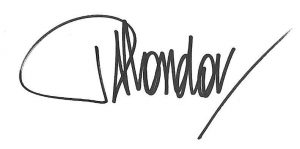2021 is the start of a long recovery for the tourism industry, and it will be hampered by a shortfall of workers.
The sector has faced a very difficult year and the long road to recovery will continue to be difficult to navigate. 2021 looks promising, filled with renewed hope and optimism especially now that vaccines are available. Government relief programs have been a true lifeline for many businesses. The reliance on these programs and the need for additional supports—including those tied to the workforce—will be especially important for recovery.
The federal government announced sector-specific support measures in the Fall Economic Statement (presented on November 30), and we are anticipating additional measures along with a new Tourism Recovery Strategy. Provincial and national tourism associations continue to be responsive as they recalibrate recovery strategies and anticipate further programs to help tourism businesses remain solvent and, increasingly, to help businesses evolve and learn to thrive in a new economic reality. Tourism HR Canada’s focus has been on the workforce and what’s needed to help develop a dynamic, inclusive, and resilient workforce.
Tourism HR Canada has been looking closely at the impacts of COVID on the workforce, and the fallout on GDP and consumer confidence. Our other research is focused on labour projections based on COVID recovery scenarios. The data is informing new recommendations on policies and programs to help the sector restart its workforce, captured in four themes: Skills, Supply, Sentiment, and Strategy.
Investments in skills are essential. Businesses must optimize their workforce by ensuring workers are versatile and adaptable to a range of work contexts, equipped with transferable skills and new skills that enable businesses to transform their business and operational models. In 2021, Tourism HR Canada will be expanding its online free training for businesses, along with additional resources and tools to help owners or operators tackle new operational challenges. Industry is asking for assistance with product development, business innovation, use and integration of new technology (operational/staff, consumer support, social media), strategies for business stability and risk management, and much more.
Tourism is facing staggering employment losses that far exceed the overall economy, and projections suggest that these losses will hamper the ability of the sector to rebound and recover from COVID.
The shortfall of workers will be a great challenge. New strategies and government support will be needed to help strengthen worker retention strategies. In addition to continued wage subsidies that help hold on to workers, the sector must focus on recalling furloughed workers and seeking to attract new workers. Although it may seem premature to start expanding on the supply of workers while many businesses remain shuttered or at reduced capacity, the sector must have ready, skilled workers that can quickly be deployed to help it respond to market demands. The longer the delay in rebuilding the supply of qualified workers, the more difficult and increasingly competitive it will be to attract workers. A shortfall of workers impacts the ability of businesses to meet visitor demand, both in terms of capacity and quality of services.
Research is also indicating that consumer/public and worker sentiment is waning. Tourism employment is viewed as precarious, risky, and unsafe. Increasingly, communities are skeptical of tourists and uncertain if the economic and social benefits of tourism outweigh the risks. In 2021, Tourism HR Canada continues to seek funding to help businesses demonstrate good practices that will also increase consumer/public confidence, as well as investments in an employment campaign to promote careers in tourism.
Workforce recovery is also tied closely to strengthened coordination that brings together all stakeholders and optimizes the use of resources. Tourism HR Canada is committed to providing the most comprehensive and current labour market intelligence to inform investments in recovery strategies, workforce programs (e.g., training, retention, attraction), and public policy.
Join us this Friday, January 15, at 2 PM Eastern for a webinar exploring the most up-to-date data on workforce trends, what to anticipate for labour challenges over the next year, and recommendations on policies and programs to help the sector restart its workforce.
We have a lot planned for this year and we’re all going to have work especially hard at tackling the difficult recovery efforts, but it will all be worthwhile.
Wishing you all a very happy, healthy, and prosperous new year.
Philip Mondor, President and CEO
Tourism HR Canada


